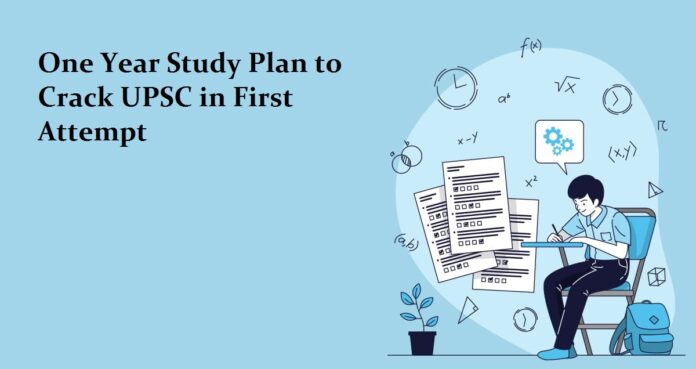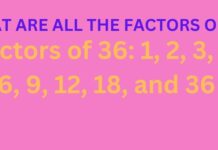The Civil Services Exam managed by the UPSC is one of the most esteemed exams of the country. Each year, thousands of candidates put their best foot forward to clear this exam, but merely a few make it through. The first attempt is very critical. Aspirants appearing for the first time must set the target to ace the exam in the first attempt. Clearing the UPSC exam is exactly like playing a video game. You need to be focused and determined to make it until the end as the difficulty increases with each level.
But why exactly is the study plan so important? Because when you are studying for an exam, time management plays a very crucial role. Time is the most valuable thing an aspirant can spend, so make sure you use it wisely. Create your timetable as per your schedule, when, how, what to study, and then devise a study plan based on your grasping power.
There are three stages for every Civil Services Examination such as Prelims, Mains, and Interview. Just like you need a game map to be well acquainted with the game, you will need a study plan to clear the exam for clearing the UPSC exam. An arduous amount of learning is required to cover the UPSC syllabus. So it is mandatory to have a study plan.
One Year Study Plan for UPSC
However, before explaining further about the study plan, you must be thinking about how to prepare for the IAS exam? You can join The Thought Tree(T3). T3 is one of the promising and leading IAS coaching in Jaipur, Rajasthan. The faculty consists of top educators and experts who are of varied backgrounds and offer high quality education.
This article sheds some light on how to formulate a one year study plan for UPSC preparation.
-
Month 1
In the first month, a good amount of research about the syllabus, the question papers, the exam needs to be done. A thorough understanding of the syllabus is the main prerequisite of civil services exam preparation. However, the Civil Services are very well known for their extensive syllabus, so it is strongly advised that every aspirant must have a copy of the syllabus at hand in every stage of the exam. Be on the lookout for the current topics and the happenings. Furthermore, begin reading the newspaper, follow online news blogs and channels for current events. Devise your own UPSC study plan and set the targets.
-
Months 2-5
During these months, read in a manner that the portion for the prelims and mains is covered simultaneously. During this time, read the suggested NCERTs from grades 6 to 12, which will create your foundation of all the basic concepts, and it will ensure that all your concepts are clear for each subject present in the General Papers. On the other hand, keep making short notes on NCERT books as well as on news articles. Making notes will help you in learning and memorizing concepts easily.
Aspirants must also look into last years’ question papers as an analysis of previous years’ papers will help put the syllabus in a better aspect and highlight which questions have been asked more.
-
Months 6-8
In these two months, you will have to pick your optional subject for your UPSC Mains papers. You will be provided with a list of optional subjects accompanied by the syllabus, and you can choose any one subject. After selecting the subject, you should start preparing for the exam without any further delay as per the syllabus. At this stage, you should also start taking mock tests to prepare for the Prelims exam.
-
Months 9-12
In these 3 months, practice writing answers to polish your writing skills for the Mains exams as the answers are eloquent. In addition, also refer to previous question papers and take mock test series. Keep reading the newspaper and keep track of the current events. Take as many practice tests as you can and learn to manage time. Read government reports and newspaper columns as they will help you assemble your thoughts and view topics from a new perspective.
At the end of this stage, you must have been done with your IAS mains exam.
Post Mains
After the mains exams, the game hasn’t come to an end, you have got some to prepare for the next stage of the game. Meanwhile, don’t break the cycle of reading the newspapers. Do you research on which type of questions are asked in the interview round and consequently prepare yourself. The results will come out after some months. So, during this time don’t stress and keep working on yourself.
How much time is enough for preparing?
It varies from student to student as everyone has a unique way of learning and studying. Plan your schedule, finish all the topics on time and revise them as well. The approximate time to prepare for IAS can be around about 10 – 12 hours of regular studying.
Benefits of a Study Plan for UPSC Preparation
- When you will study as per the schedule, it will allow you to focus and not getting lost in the process of preparation.
- A study plan will ensure that you cover the whole UPSC syllabus in the designated time frame. Because once the study plan is created, you will know how much time you have to allocate for your studies correspondingly. In this manner, you will be able to study seamlessly and you won’t get into a frenzy at the beginning of the exam stage.
- When you will have a study plan as per your schedule, you can have a personalized approach for different subjects according to your grasping capabilities.
- Because of a study plan, your brain will absorb more information when you will study in accordance with a study timetable as when compared to a random study session.
- When you will study as per your schedule you will come to know that you have a lot of time available for studying. You will learn to manage time and this will certainly help you in achieving your goal of becoming an IAS officer.
- A study timetable will make sure that you will be able to take your practice tests. In this manner, you will know where you stand amongst your competitors.
- As you will move little by little towards your goal, it will boost your self confidence.
- When things are planned in advance, it becomes easier to achieve the goal.
Standard books to refer to (Besides NCERTs)
Indian History & Culture
- India’s Struggle for Independence by Bipin Chandra
- A New Look at Modern Indian History by B L Grover & Alka Mehta
World History
- Mastering Modern World History by Norman Lowe
India & World Geography
- Certificate Physical & Human Geography by Goh Cheng Leong
- India: A Comprehensive Geography by D R Khullar
- World Geography by Majid Hussain
Indian Society
- Social Problems in India by Ram Ahuja
Indian Polity
- Indian Polity by M Laxmikanth
- Introduction to the Constitution of India by DD Basu
- Our Constitution by Subash Kashyap
International Relations
- India’s Foreign Policy by V P Dutt
- Rethinking India’s Foreign Policy by Rajiv Sikri
Economic Development
- Indian Economy Since Independence by Uma Kapila
- Indian Economy Key Concepts by K. Shankarganesh
Ethics, Integrity & Aptitude
- Ethics, Integrity & Aptitude by G Subba Rao
- The Lexicon for Ethics, Integrity & Aptitude by Niraj Kumar
Final Word
So, to end this discussion, I hope that this one-year study plan for IAS will be useful and help you in pursuing your dream of becoming an IAS officer. Keep in mind that this study plan is only to guide you and give you an idea of how the exam preparation is done. You can use this for reference and make some changes as per your convenience.
Read also: Here Is How To Apply For Upcoming SSC CGL Exam Online
If you want to know more about our courses and exam preparation strategies, get in touch with us!
FAQs
Q1. Is 1 year sufficient for IAS preparation?
Yes, one year is enough for preparing for IAS exam. Work hard and dedicate yourself while preparing for this exam.
Q2. How many papers are there in the IAS Mains exam?
IAS Mains exam consists of 9 papers which include 1 essay paper, 4 General studies papers, 2 language papers, optional papers.
Q3. What is the aim of conducting an IAS Interview?
The main aim of the interview is to evaluate the Intellectual power of an aspirant apprehending not only the IQ but also the level of interest in current events.
Q4. Is it important to devise a strategy to clear the IAS Exam?
Yes, all the aspirants should have sound knowledge and a well planned strategy to crack a tough exam like IAS.







